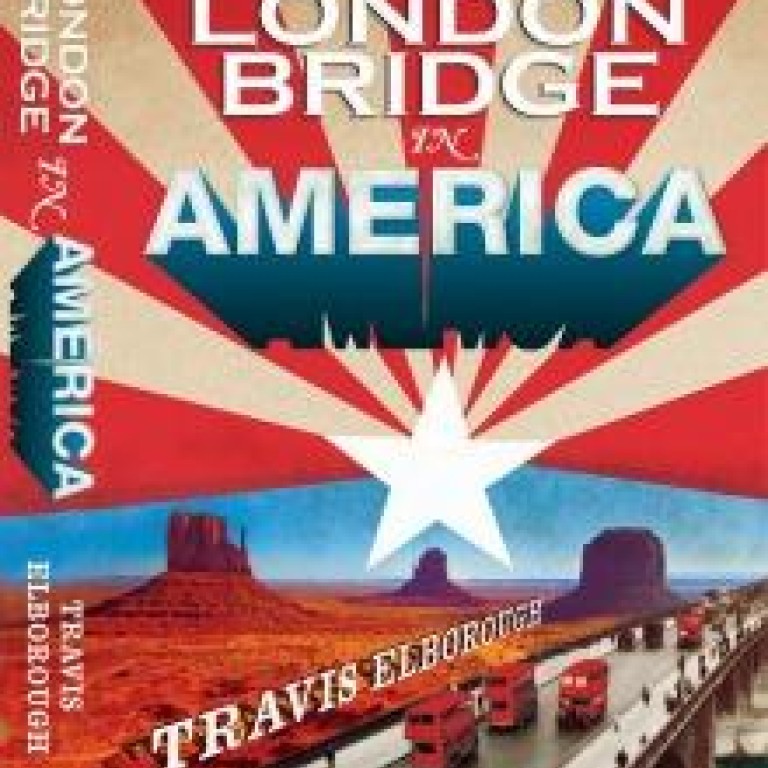
Book review: London Bridge in America, by Ian Sansom
With his fourth book, Travis Elborough might be said to have perfected his impressive trifling technique: to salvage objects, places and ideas that have been overlooked and write about them in rich prose.
by Travis Elborough
Jonathan Cape

tells three stories: that of the building of the bridge in the 19th century; the story of its sale to a wealthy oil baron in the 1960s; and the long story of 20th-century British decline and American ascendancy. But there is much else here, including a debunking of the myth of Arthur Furguson, the conman who has long been reputed to have sold Nelson's Column, Buckingham Palace and Trafalgar Square to greedy Americans.
Furguson turns out to be an imaginary figure representing Old World/New World anxieties and antipathies. At no point, Elborough makes clear, were the US buyers of the dull, granite-arched London Bridge under the impression they had bought the much more impressive Tower Bridge. This is just a Furguson-style fantasy.
A book about ambitions and desires, is also about deceptions and fears: it is a work "as serpentine as the Thames, with many loops and eddies and possibly some high and low tides", Elborough writes.
Officially opened on August 1, 1831, and replacing the famous 600-year-old medieval London Bridge, the structure the Americans bought was "a noble classical granite bridge of five semi-elliptical arches, two of 130 feet, two of 140 feet and a central arch of 152 feet and six inches", dismantled stone by stone in 1968, and reassembled in Lake Havasu, Arizona, in 1971.
The dimensions of the book are large and strange, but Elborough's style is what one might call cosy modern: vivid, chatty and amiable, unencumbered by vaguenesses or abstractions, and aerated by good humour, charismatic flashes of metaphor and flights of fancy.
On the evidence of , it would probably be justifiable now to proclaim Elborough one of Britain's finest pop cultural historians.
